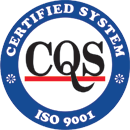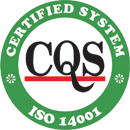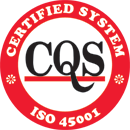Resistance temperature sensors are designed for contact temperature measurement of liquid and gaseous substances. They operate on the principle of dependency of the change of resistance of the sensor and the change of temperature. Resistance temperature sensors are not able to create sparks, electric arcs or high surface temperatures and the maximum permitted DC input power for the sensor is 2mW. The standard temperature range for using of the sensor in ZONE 2 is - 30 to 80 °C, which corresponds to temperature class T6, and it must not be exceeded even for a brief period in areas with the risk of explosion. The stem design allows the use of sensors for direct temperature measurement in pipelines and at the same time it provides a fast sensor response to changes in temperature compared to sensors with a thermowell.
The sensors are designed to be operated in a chemically non-aggressive environment, the use must be chosen with regard to temperature resistance of the head and chemical resistance of the case and head of the sensor.
DECLARATION, CERTIFICATION, CALIBRATION
- Manufacturer provides EU Declaration of Conformity.
- Calibration – The final metrological inspection – comparison with standards or working instruments – is carried out for all the products. Continuity of the standards and working measuring instruments is ensured within the meaning of the Section 5 of Act no.505/1990 on metrology. The manufacturer offers a possibility to supply the sensors calibrated in SENSIT s.r.o.’s laboratory (according to requirements of the EN ISO/IEC 17025 standard) or in an Accredited laboratory.




